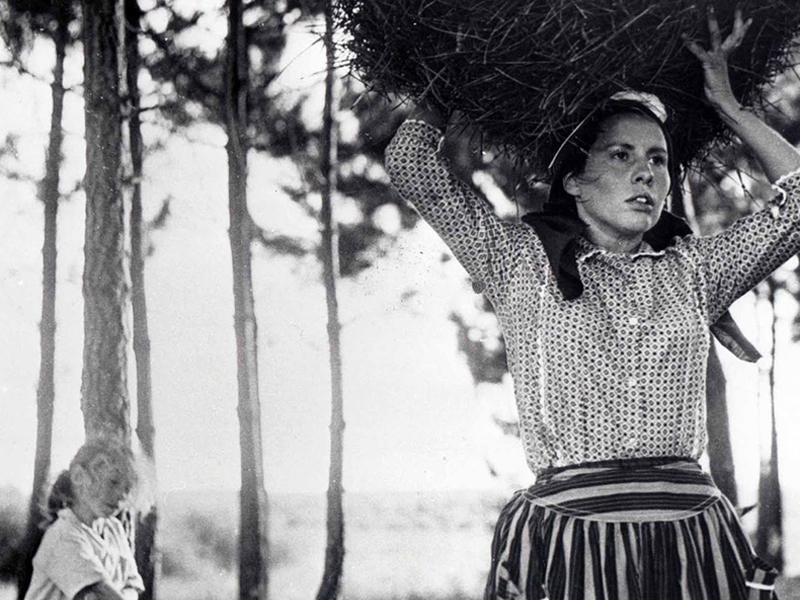
After a stint in the army fighting in Angola, a soldier comes home to find his sweetheart has married his brother. He makes advances towards his sister-in-law, but she turns him down. Discouraged, the man meets a new girlfriend who vows to escape the town's crushing poverty even if she has to steal. The two begin a relationship but the film does not indicate what their future may hold.
“Similarly to Varda’s La pointe courte, Change of Life is firmly rooted in the routines and the precariousness of fishermen’s lives: Men tending to the nets and laboring on boats, women collecting bounty on shore, the toil, sweat and anguished fear of hunger or a death at sea. Manuel Carlos da Silva and Elso Roque’s lush black-and-white cinematography gives way in some scenes to blanched-out vapors, fogs wafting off the sea and enveloping the land. It’s a perfect complement to the low, hot-breathed susurrations between the lovers, as Adelino warns the increasingly frail and troubled Júlia: “Never again will you have peace.” The dialogues, written by another master of Portuguese cinema, António Reis (of Trás-os-Montes, 1976, among other films), have a fiery back-and-forth energy to them, often leaping over the music.”
Ela Bittencourt1
“Pedro Costa: “Ik zou willen terugkomen op ... hetgeen ik als anders zie in die film [Mudar de vida] zijn de lichamen en de manier waarop u hen filmt. Het zijn geen jonge lichamen, weifelend, burlesk. Ondanks ziekte, arbeid, uitputting, zijn het ‘glorieuze lichamen’. En u filmt hen nagenoeg altijd op hun hoogte, zonder hen te verfraaien. Desalniettemin is uw découpage veel verfijnder dan in Os verdes anos. Op een gegeven moment ben ik mij beginnen afvragen of de dialogen u niet ‘gedwongen’ hebben op een bepaalde manier te filmen. Bepaalde beslissingen, bepaalde ademhalingen of visuele punctuaties kwamen niet van de tekst ...”
Paulo Rocha: “... van António. Het is zeker dat wanneer ik de film nu zie, ik de stem van António Reis hoor terwijl hij de dialogen voorleest en instructies probeert te geven, met de meer volkse kant die hij had, gevoelig voor toespelingen, bespottingen van de ene aan de andere en ergernissen. [...] Men voelde dat António Reis erg intens was in hetgeen hij deed en men werd gewaar dat hij daar was om te vechten met de tekst. Dat wil zeggen, hij ging er prat op en beklaagde zich dat het voor hem een afschuwelijk werk was. Hij zei: ‘Let op, want een komma, een punt of een ritmeverandering ... ik heb er honderd keer over nagedacht en men kan er niet zomaar aan voorbijgaan’.””
Pedro Costa in gesprek met Paulo Rocha2
“António gave me a great lesson. He worked on the dialogues for six months, scratching and throwing them away. Every day thinner, always in a cold sweat, searching for the comma, the pause, the secret and expressive assonance. The dialogues, dragged out in irons, arrived at the filming at the last minute, and there was no time to reflect on them. It was only years later, when Mudar de Vida had its premiere in Tokyo, that I had the opportunity to study them. The work of translating them into Japanese was very slow, and only then could I discover the musical concision, the secret wealth of those phrases written with an infallible ear. How many dialogues in our language can compare to that?”
Paulo Rocha
- 1Ela Bittencourt, “Troubled Love: Paulo Rocha’s “The Green Years” and “Change of Life”, Notebook, August 2020.
- 2Pedro Costa, “Fragmenten uit een gesprek tussen Pedro Costa en Paulo Rocha”, Sabzian, 2000.

